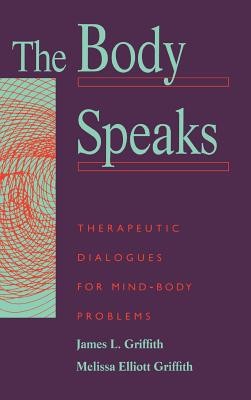
- We will send in 10–14 business days.
- Author: James Griffith
- Publisher: Basic Books
- ISBN-10: 0465007163
- ISBN-13: 9780465007165
- Format: 16.4 x 24 x 2.5 cm, hardcover
- Language: English
- SAVE -10% with code: EXTRA
Reviews
Description
For decades, health care providers have worked as though there were a monolithic wall dividing the ailments of the mind from those of the body. Theorists on either side developed separate languages and philosophies to explain symptoms. This distinction has left many clinicians unable to treat successfully patients whose symptoms--such as headaches, conversion paralysis, and seizures--arise from the place where mind and body meet. In this book, the authors describe a powerful narrative therapy, one that relies on the wisdom and everyday language of patients' real-life stories instead of the expert knowledge and professional language of the clinician. This approach can be used across all categories of somatic symptoms, from factitious ones to medical illnesses such as asthma or migraine headaches.The authors show how somatic symptoms are often related to unspeakable dilemmas, as in the case of a child who, after discovering a parent's marital infidelity, is afraid to disclose the secret and begins having blackout spells for which a neurologist can find no physiological basis. These dilemmas can be understood only if a clinician creates the kind of relationship in which privately held stories of fear, shame, and threat can be told safely. Detailed case studies and numerous brief examples vividly illustrate techniques for helping patients escape the dilemmas that bind their bodies by finding new language and stories that can free them.In an innovative section, the authors rethink the current ideas and practices of psychopharmacology. Rather than "treating" a brain disease, a clinician uses medications to recalibrate brain systems that register alarm, thereby opening new possibilities for therapeutic change through speaking, listening, reflecting, and relating.This book offers all clinicians--psychiatrists, social workers, psychologists, nurses, physicians, and family therapists--a way to use language to help patients resolve bodily symptoms. It avoids the stigmatization that patients and families so often experience--and the frustration clinicians feel--when struggling to find answers for mind-body problems.
EXTRA 10 % discount with code: EXTRA
The promotion ends in 20d.01:50:57
The discount code is valid when purchasing from 10 €. Discounts do not stack.
- Author: James Griffith
- Publisher: Basic Books
- ISBN-10: 0465007163
- ISBN-13: 9780465007165
- Format: 16.4 x 24 x 2.5 cm, hardcover
- Language: English English
For decades, health care providers have worked as though there were a monolithic wall dividing the ailments of the mind from those of the body. Theorists on either side developed separate languages and philosophies to explain symptoms. This distinction has left many clinicians unable to treat successfully patients whose symptoms--such as headaches, conversion paralysis, and seizures--arise from the place where mind and body meet. In this book, the authors describe a powerful narrative therapy, one that relies on the wisdom and everyday language of patients' real-life stories instead of the expert knowledge and professional language of the clinician. This approach can be used across all categories of somatic symptoms, from factitious ones to medical illnesses such as asthma or migraine headaches.The authors show how somatic symptoms are often related to unspeakable dilemmas, as in the case of a child who, after discovering a parent's marital infidelity, is afraid to disclose the secret and begins having blackout spells for which a neurologist can find no physiological basis. These dilemmas can be understood only if a clinician creates the kind of relationship in which privately held stories of fear, shame, and threat can be told safely. Detailed case studies and numerous brief examples vividly illustrate techniques for helping patients escape the dilemmas that bind their bodies by finding new language and stories that can free them.In an innovative section, the authors rethink the current ideas and practices of psychopharmacology. Rather than "treating" a brain disease, a clinician uses medications to recalibrate brain systems that register alarm, thereby opening new possibilities for therapeutic change through speaking, listening, reflecting, and relating.This book offers all clinicians--psychiatrists, social workers, psychologists, nurses, physicians, and family therapists--a way to use language to help patients resolve bodily symptoms. It avoids the stigmatization that patients and families so often experience--and the frustration clinicians feel--when struggling to find answers for mind-body problems.


Reviews